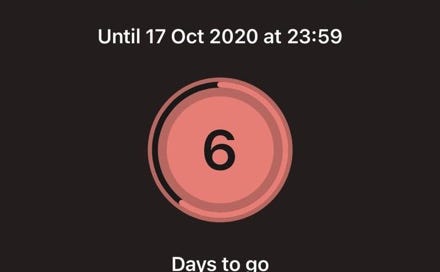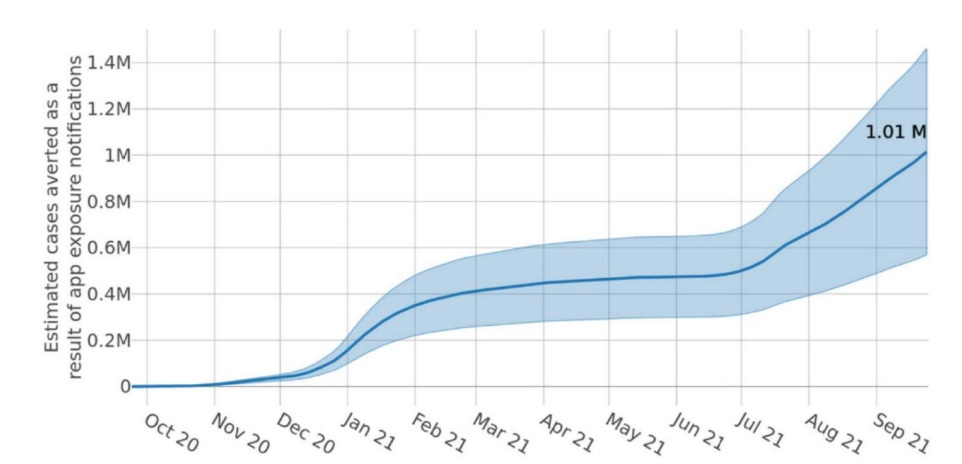One of the biggest single threats to public health right now is the tidal wave of disinformation flooding the internet, much of it emanating from the United States. No wonder, when the man in what is probably the single most influential healthcare job in the world, Robert F Kennedy Junior, is a major source of unreliable information. From his claim that people with autism will never pay taxes or hold a job, to his undermining of the MMR vaccine - “contains aborted fetus debris” - in the middle of a measles outbreak, the United States Secretary of Health appears to be competing with his boss the President to utter the maximum number of untruths in a day.
But it struck me this week that on some subjects people who would be appalled to be compared with Trump or Kennedy are happy to spew out wildly inaccurate ‘facts’ and numbers just because they fit with their settled views.
Take for instance the UK’s Covid-19 contact tracing app rolled out during the pandemic. Plenty of people who were angry about the way the government handled the pandemic will tell you with conviction that the app was a colossal waste of money, costing £37 billion pounds and then annoying users by pinging constantly to tell them they had to go into quarantine when there was no need.
As someone who followed the tortuous saga of the app in great detail for the BBC this always exasperated me. There was plenty to criticise about the way politicians handled the project. But the truth, as documented by Full Fact, is that £37 billion was the budget allocated (though not all spent) for the first two years of the whole Test and Trace operation while the app cost £37 million in its first year. What is more, it cut the number of Covid cases and saving a lot of lives.
This all went through my mind as I sat watching the livestream of the UK’s Covid-19 Inquiry on Tuesday. The Inquiry has now started its latest module which is about Test and Trace and the afternoon session was devoted to the contact tracing app. The sole witness was Professor Christophe Fraser, the Oxford University epidemiologist who became scientific advisor to the team developing the app and often acted as its public face, with ministers and civil servants apparently unable or unwilling to talk about it on the record.
Professor Fraser was everything that Robert F Kennedy Junior is not - measured, precise, careful to make clear where there were uncertainties about the data he used to illustrate his evidence. Of course, it is impossible for someone who has devoted himself to a mission in the way he did to be completely objective but he managed to be frank about things that he had got wrong and about the failings of the wider UK response to Covid-19.
He said the momentum behind building a digital form of contact tracing sprung from a realisation by him and other epidemiologists in February 2020 that the UK was unlikely to be able to build a traditional test and trace programme that was speedy enough to combat the virus effectively. The key problem was the discovery that Covid could be spread before the carriers were even showing any symptoms.
A first version of the app - one which involved storing contact data centrally - was built with remarkable speed and trialled on the Isle of Wight in May. But then it was ditched in favour of building a more privacy friendly app using technology supplied by Apple and Google.
Professor Fraser still thinks that first app could have played a useful role in limiting transmission of the virus if it had been rolled out that summer as originally planned. But he told the inquiry he had changed his mind about the privacy issue:
“With the benefit of hindsight, I think I'm quite sympathetic to the view that in the long term, preserving people's privacy with phone apps is important, and perhaps the legacy of having made the decisions in favour of privacy were good ones in terms of having people's trust for these tools in the future.”
It was not until the end of September that the new app was launched but with the vaccines not available until the turn of the year, there was still time for it to make a substantial impact. The inquiry was told about a paper in Nature by Professor Fraser and colleagues examining the effect the app had on Covid infections and deaths in the first three months. Estimates of the number of cases averted ranged between 284,000 and 594,000, with the consequence that there were between 4,200 and 8,700 fewer deaths. Later, the same methodology was used to calculate that over a year the app had averted more than a million cases and around 9,000 deaths.
It was what the media dubbed the pingdemic in the summer of 2021 which seems to have really damaged the reputation of the app. When the Euros, the football tournament postponed from 2020, sent people into the stadiums and pubs, contacts with infected people soared, triggering a cacophony of pings ordering thousands into quarantine. Christophe Fraser said the problem was not the pings but the action mandated for those who received them at a time when a large section of the population had been vaccinated: “People shouldn't have been being quarantined with a relatively low risk that they were, in fact, infected.”
When it comes to the wider response to the pandemic, Professor Fraser paints a picture of the UK as being unprepared in advance for the challenges it posed, and once it got underway scrambling in vain to get ahead of the virus:
“There was no point during the pandemic where the public health system wasn't overwhelmed,” he said. He explained that countries with public health systems operating within capacity were able to respond to outbreaks with acombination of testing and manual and app based contact tracing: “Whereas in the UK, there was always less - slightly less or much less - than would be needed to achieve that.”
He had strong views on what the country needed to do to be ready for the next virus, calling for a testing and tracing operation to be permanently on standby: “They need to be ready from the outset so that Public Health is on top of the situation before it spins out of control.” Professor Fraser was clear that part of the response would need to be a new contact tracing app that would be ready to launch within weeks of an epidemic being declared. Right now, the work needed to make that possible was not being done.
This was the first time that I had tuned into the Covid Inquiry at any length and I was impressed. The questions put by the counsel to the inquiry and by lawyers for several patient groups were well informed and everyone appeared determined to get to the truth and to learn lessons.
The problem is that for every truth teller on matters of health there appear to be a dozen myth makers out there spreading inaccurate stories about everything from vaccine safety to the Covid-19 pandemic. The myths are far more colourful and gripping than the dull, often very complex truth. But if we are to have a healthy future we need to be able to distinguish between the two.




